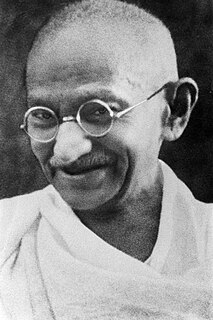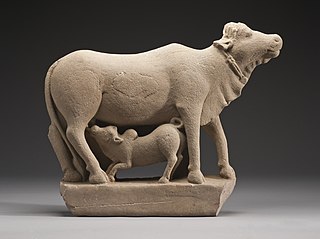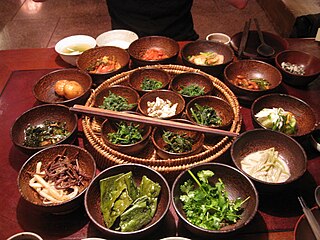Biography
Pastorino has released six albums: I gatti di Baudelaire (1995), Inventare l'allegria (1997), Trentanni (1999), Un sogno di mare (2005), Live and let live (2006), Tango che ho visto ballare... (2012).
She has also dedicated her efforts to learning Jainism. In 2002 Pastorino published, with Edizioni Cosmopolis, Jainism, the most ancient Doctrine of Nonviolence, Compassion and Ecology, an Italian translation of The Book of Compassion. In 2003, she published Essence of Jainism: History, Philosophy, Tales, by Editori Riuniti.
On the subject of voice-therapy, Pastorino published Curarsi con la voce, 2009 (Riza Scienze) and Il canto e la vita, 2012 (Elegantia Doctrinae).
Since 1983 Pastorino has volunteered as an activist for animals rights and welfare, and has advocated vegetarianism. In 1983 she founded the Antivivisection Association in Liguria.

Vegetarianism is the practice of abstaining from the consumption of meat, and may also include abstention from by-products of animal slaughter.

Nonviolence is the personal practice of being harmless to one's self and others under every condition. It may come from the belief that hurting people, animals and/or the environment is unnecessary to achieve an outcome and it may refer to a general philosophy of abstention from violence. It may be based on moral, religious or spiritual principles, but also the reasons for it may be purely strategic or pragmatic.

Due to the multiple benefits from cattle, there are varying beliefs about cattle in societies and religions. In some regions, especially most states of India, the slaughter of cattle is prohibited and their meat may be taboo.
The Christian Vegetarian Association (CVA) is an international, non-denominational Christian vegetarian organization that promotes responsible stewardship of God's creation through plant-based eating. The CVA advocates vegetarianism from a biblically-based, Christian perspective and sees dietary choice as a valid way to bear witness to Christ's ministry of love, peace, mercy and compassion, and prepare for the Peaceable Kingdom as foretold in the Bible.

Richard H. Schwartz is a professor emeritus of mathematics at the College of Staten Island; president emeritus of the Jewish Vegetarians of North America (JVNA); and co-founder and coordinator of the Society of Ethical and Religious Vegetarians (SERV). He is best known as a Jewish vegetarian activist and advocate for animal rights in the United States and Israel.

Vegetarianism is strongly linked with a number of Dharmic traditions (religions) that originated in ancient India, and it is sometimes linked with non-Dharmic religions.

Jain vegetarianism is practiced by the followers of Jain culture and philosophy. It is one of the most rigorous forms of spiritually motivated diet on the Indian subcontinent and beyond. The Jain cuisine is completely lacto vegetarian and also excludes underground vegetables such as potato, garlic, onion etc, to prevent injuring small insects and microorganisms; and also to prevent the entire plant getting uprooted and killed. It is practised by Jain ascetics and lay Jains.

Buddhist vegetarianism is the practice of vegetarianism by significant portions of Mahayana Buddhist monks and nuns and some Buddhists of other sects. In Buddhism, the views on vegetarianism vary between different schools of thought. The Mahayana schools generally recommend a vegetarian diet because Gautama Buddha set forth in some of the sutras that his followers must not eat the flesh of any sentient being.

Marie Huot was a French poet, writer, feminist, animal rights and vegetarianism activist.

Animal rights is the idea in which some, or all, animals are entitled to the possession of their own existence and that their most basic interests—such as the need to avoid suffering—should be afforded the same consideration as similar interests of human beings. That is, some species of animals have the right to be treated as individuals, with their own desires and needs, rather than as an unfeeling property.

The earliest records of vegetarianism as a concept and practice amongst a significant number of people are from ancient India, especially among the Hindus and Jains. Later records indicate that small groups within the ancient Greek civilizations in southern Italy and Greece also adopted some dietary habits similar to vegetarianism. In both instances, the diet was closely connected with the idea of nonviolence toward animals, and was promoted by religious groups and philosophers.
Janet Regina Hyland, also known as "J. R. Hyland", was an American non-fiction and philosophical author.
The 21st-century debates about animal welfare and animal rights can be traced back to the ancient world.
Jewish vegetarianism is a commitment to vegetarianism that is connected to Judaism, Jewish ethics or Jewish identity. Jewish vegetarians often cite Jewish principles regarding animal welfare, environmental ethics, moral character, and health as reasons for adopting a vegetarian or vegan diet.
World Compassion Day, often abbreviated to WCD, is an idea based on Ahimsa and Compassion. It is a day for global icons to share their ideologies, values and principles on how to make the Gandhian ideals of Ahimsa and Compassion relevant to our times.
Animal welfare and rights in India regards the treatment of and laws concerning non-human animals in India. It is distinct from animal conservation in India.

The respect for animal rights in Jainism, Hinduism, and Buddhism derives from the doctrine of ahimsa.

An Essay on Abstinence from Animal Food, as a Moral Duty is a book on ethical vegetarianism and animal rights written by Joseph Ritson, first published in 1802.
Satya was an American monthly magazine which covered vegetarianism, animal rights, environmentalism and social justice issues. It was co-founded by Beth Gould and Martin Rowe in 1994 and released its final issue in 2007. Scholar Gary Francione says Satya became the main journal that promoted animal welfare after the demise of The Animals' Agenda in 2002.











